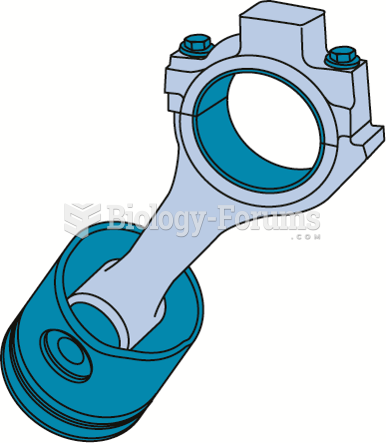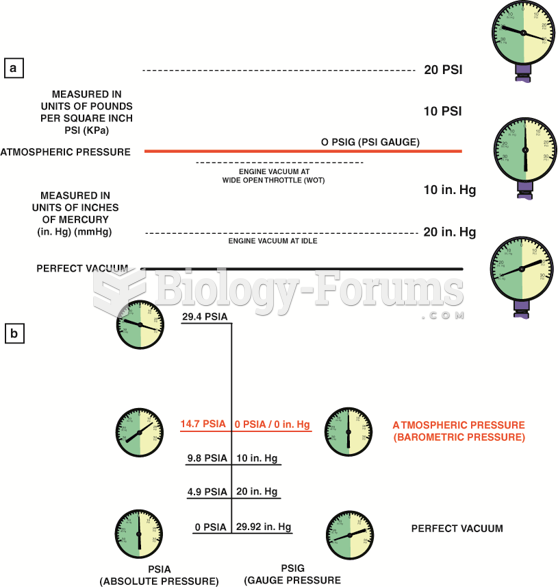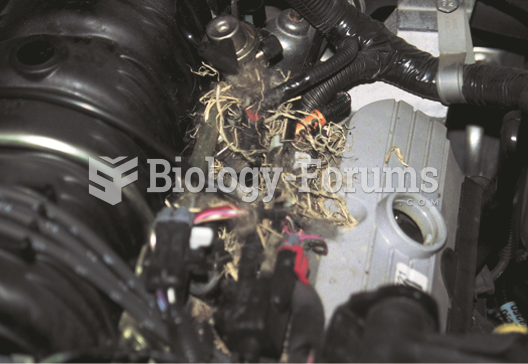|
|
|
The Romans did not use numerals to indicate fractions but instead used words to indicate parts of a whole.
More than 4.4billion prescriptions were dispensed within the United States in 2016.
Thyroid conditions may make getting pregnant impossible.
When blood is deoxygenated and flowing back to the heart through the veins, it is dark reddish-blue in color. Blood in the arteries that is oxygenated and flowing out to the body is bright red. Whereas arterial blood comes out in spurts, venous blood flows.
Signs of depression include feeling sad most of the time for 2 weeks or longer; loss of interest in things normally enjoyed; lack of energy; sleep and appetite disturbances; weight changes; feelings of hopelessness, helplessness, or worthlessness; an inability to make decisions; and thoughts of death and suicide.







